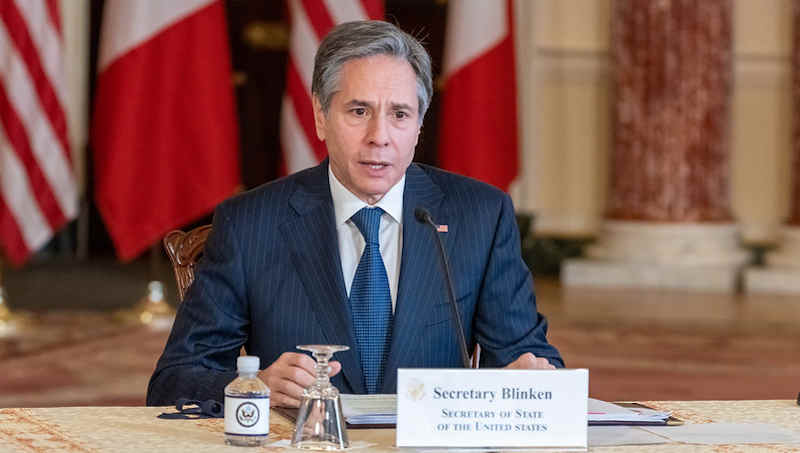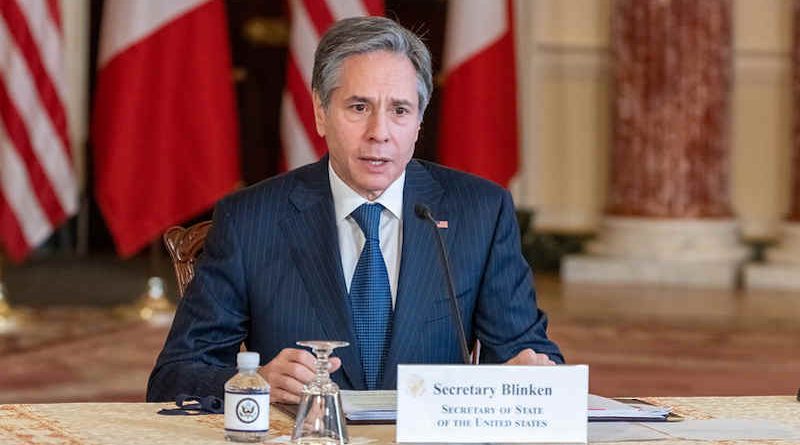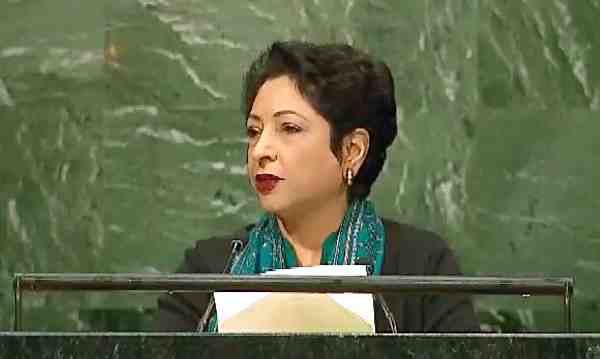U.S. Report Concludes Saudi Crown Prince Approved Killing of Jamal Khashoggi

The “Khashoggi Act” will ban entry into the United States of foreigners who threaten dissidents or harass journalists and their families.
By Rakesh Raman
The United States for the first time has publicly accused Saudi Crown Prince Mohammed bin Salman of approving the murder of journalist Jamal Khashoggi, who was a U.S. resident.
An intelligence report declassified on Friday (February 26) by President Joe Biden’s administration claimed that Mohammed bin Salman (a.k.a. MBS) approved an operation in Istanbul, Turkey to capture or kill Saudi journalist Jamal Khashoggi.
Khashoggi, a critic of the prince who wrote for The Washington Post was lured to the Saudi consulate in Istanbul in October 2018, then killed and cut into pieces.
The intelligence report added that Khashoggi’s murder follows a pattern of “the crown prince’s support for using violent measures to silence dissidents abroad.” In response, the U.S. Treasury Department has announced a number of punitive measures.
These include freezing of assets and criminalizing transactions with a former intelligence official as well as the Rapid Intervention Force, an exclusive unit that the report said defends the crown prince and reports only to him.
In honor of the murdered journalist, the U.S. Secretary of State Antony Blinken has announced the “Khashoggi Act” that will ban entry into the United States of foreigners who threaten dissidents or harass journalists and their families and placed 76 Saudis on the blacklist.
The murder of journalist and U.S. lawful permanent resident Jamal Khashoggi shocked the world. Starting today, we will have a new global policy bearing his name to impose visa restrictions on those who engage in extraterritorial attacks on journalists or activists.
— Secretary Antony Blinken (@SecBlinken) February 26, 2021
“The murder of journalist and U.S. lawful permanent resident Jamal Khashoggi shocked the world. Starting today (February 26, 2021), we will have a new global policy bearing his name to impose visa restrictions on those who engage in extraterritorial attacks on journalists or activists,” Blinken said in a statement.
As the U.S. has not directly targeted the 35-year-old crown prince with the argument that there was no precedent for sanctions on a senior leader of an ally, the journalist’s supporters are not satisfied.
An advocacy group founded by Khashoggi, Democracy for the Arab World Now (DAWN), called on the Biden administration to impose sanctions on MBS.
“The Biden administration and other international governments should hold MBS accountable for Khashoggi’s murder by imposing on him the full range of sanctions, including asset freezes, placed on the other Saudis implicated in the murder and ceasing all arms sales to Saudi Arabia while MBS remains in office,” DAWN said in a statement released on February 26.
The statement added that the Federal Bureau of Investigation (FBI) also should open a criminal investigation into the murder of a U.S. resident, as they have of other Americans executed abroad. According to reports, the Saudi foreign ministry has denounced the “negative, false and unacceptable assessment” and rejected “any measure that infringes upon its leadership.” It has denied the involvement of prince in Khashoggi’s murder.
Earlier in 2019, ignoring the findings of a report prepared by a UN Special Rapporteur, Saudi Arabia had sentenced five people to death and three to jail over the murder of Jamal Khashoggi.
|
Editor’s Note Today there is no organization in the world that is working effectively to protect journalists from state excesses and police brutality. Although UNESCO and other UN agencies keep releasing loose statements and random reports about media freedom, they too have failed miserably to protect journalists in different countries. Similarly, the NGOs – such as Reporters Without Borders (RSF), Amnesty International, and Human Rights Watch – that claim to be working for press freedom and protection of journalists operate only as secondary news outlets. They lift news from here and there about attacks on journalists and simply publish it under their own banners on their websites. They cannot influence and change the brutal decisions of the authorities that are unleashing terror on journalists. | By Rakesh Raman |
Following a six-month investigation, UN Special Rapporteur (on extrajudicial, summary or arbitrary killings) Agnes Callamard had released her findings into the killing of Khashoggi in 2018 at the Saudi consulate in Istanbul. Her report had analyzed evidence on the basis of international human rights law, and considered steps that could have prevented his murder.
However, a Saudi court rejected her findings by ruling that the killing was not premeditated, but carried out “at the spur of the moment”. According to Reuters, Saudi Deputy Public Prosecutor and spokesman Shalaan al-Shalaan said the court dismissed charges against three of the 11 people tried, finding them not guilty.
By Rakesh Raman, who is a national award-winning journalist and social activist. He is the founder of a humanitarian organization RMN Foundation which is working in diverse areas to help the disadvantaged and distressed people in the society.




